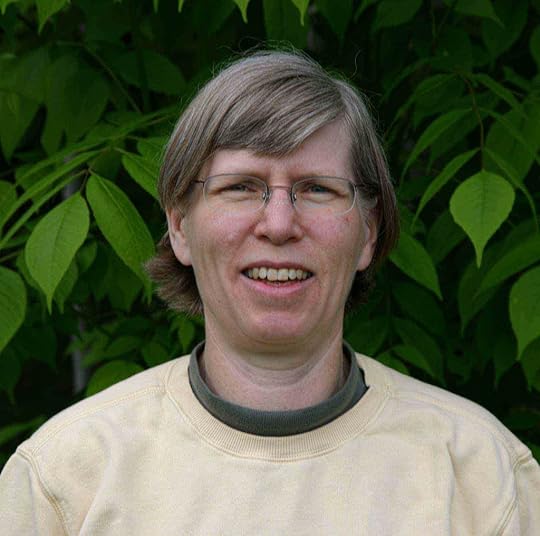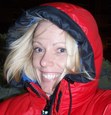The End – The Unexpected Gift

I remember exactly where I was when I gotthe news my older brother Doug had died. It was the Monday of Labor Dayweekend, 2011. I was at my home, a 28-acre forested property in MulmurTownship, southeast of Collingwood.
The telephone rang, and I answered. It wasmy eldest brother Peter calling to tell me Doug had passed away earlier thatmorning.
The news both did, and did not, come as ashock. After having a stroke-like memory loss one August day in 2010, Dougspent some time in the hospital before being diagnosed with an aggressive formof brain cancer. Chemotherapy beat back the disease for a bit, but his healthbegan to decline again, leading ultimately to a stay in a hospice before theday of the fateful call.
So the call was not unexpected—and yet,the final confirmation of what we dread is always, in its own way, an unwelcomesort of thing.
What made Doug’s death sting all the more washis age—he was only 58, and that seemed much too young.
Doug was six years older than me. Losinghim really made me think about my health and my future, and became one of themotivators—although not the only one—that drove me, three years later, to take earlyretirement at age 55.
Doug, on the other hand, had opted tocontinue working, although he too could have taken early retirement, albeitwith a reduced pension. As his health declined, I fretted that he’d made thewrong decision. Doug owned a large rural property, and had harboured thoughtsof spending his retirement days puttering around doing this and that. It struckme as unfair that he never got the chance.
I remembered so many family Christmasget-togethers where he’d either been absent, or been there on loan, his pagerclipped to his waistband as though he were some sort of corporate gun-slingerready to take on trouble at the drop of a hat. He worked too hard, I told myself. He never got the chance to really enjoy life.
A heart-warming number of Doug’s friends,fellow nature enthusiasts, former fastball teammates, and co-workers showed upto the visitation, the memorial service, and the Celebration of Life afterwardin the local Legion hall. As they made my way to the line in the visitation, orstopped and chatted with me in the quiet confines of the Legion hall, theattendees offered condolences and often, a shared story or two. It was theanecdotes, particularly those shared by co-workers, that lifted my spirits alittle.
The stories shared by his co-workers clearlyillustrated that Doug was one of those fortunate people who truly loved his job.They spoke affectionately of him as their “big brain”, thequintessential problem solver. They shared stories of his mentorship, hisdedication to the job, and his forthright but fair way of dealing with peopleat all levels in the organization. They talked about the enjoyment he got fromwrestling a thorny problem to the ground.
Some of the anecdotes were simple, somealmost trivial—yet individually and as a whole they provided comfort. Therespect and affection with which Doug’s co-workers spoke of my brother told methat he’d had a second “family” away from home—one that had careddeeply for him, and looked out after his interests.
It seems such a small gesture on theirpart, to come to a visitation and memorial service and exchange words with thefamily, yet these insights were inestimably valuable to me. Those comments andshared stories proved to be an unexpected gift that moved me closer toaccepting my brother’s fate, bridging a gap I likely wouldn’t have been able tospan on my own.
I got to thinking that maybe, in his ownway, Doug would have preferred to go out at the top of his game, rather thanfading off into the sunset. Perhaps retiring would have left a void in hislife—who was I to say? Either way, I now realized I had neither the right northe responsibility to pass judgement on his choices. Finally, I found myselfable to let go of the bitterness I’d felt on his behalf.
It’s been just over seven years since Dougpassed away, yet I still find myself thinking of him often. I miss his quirkysense of humour, his ability to reel off abstract facts, and the deep enthusiasmhe radiated when talking about his favorite pastimes and interests.
And yet, I also realize that he lived lifeon his own terms. Sure, he never got to retire. But he worked at a challengingjob that he deeply enjoyed, and in that much, he was a lucky guy.
 Author Lisa Timpf
Author Lisa TimpfLisa Timpf is a retired HR and communications professional who lives in Simcoe, Ontario. Her writing has appeared in a variety of venues, including four Chicken Soup for the Soul anthologies, Small Farm Canada, Star*Line, Dogs of War, and The Future Fire. She has self-published a collection of creative non-fiction and poetry entitled A Trail that Twines: Reflections on Life and Nature, and also wrote St. George’s Lawn Tennis Club: The First Hundred Years, the history of a tennis club in Dartmouth, Nova Scotia
You can learn more about Lisa at her blog The Writing Journey, on Amazon, or Goodreads.



